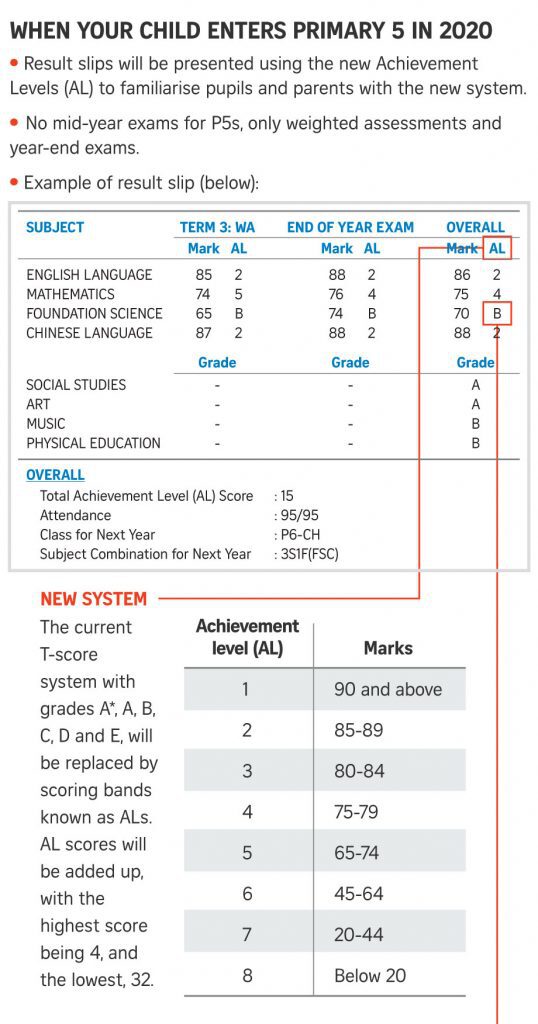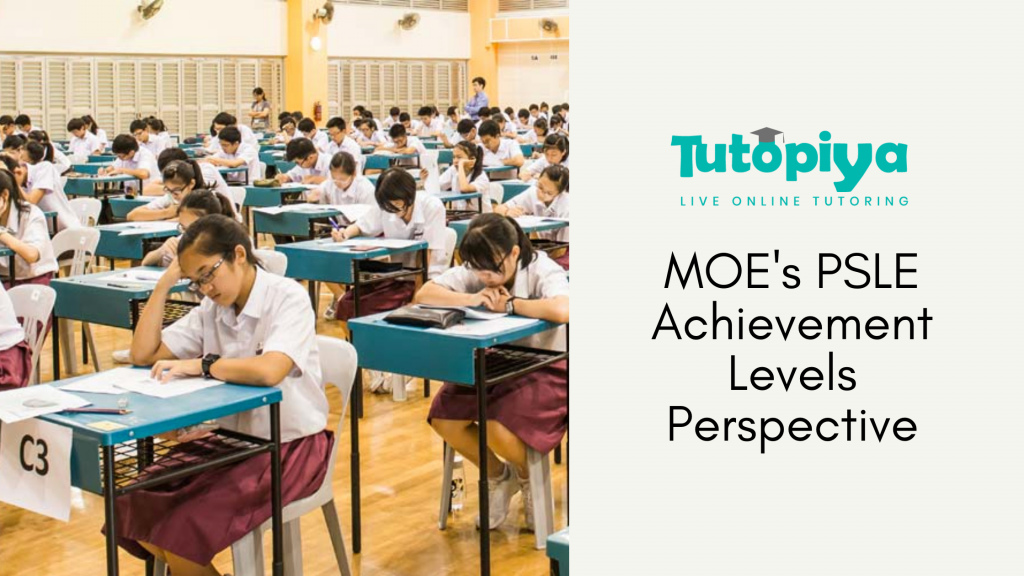The Ministry of Education is implementing some significant changes to the PSLE starting 2021 with the PSLE Achievement Levels.
Many parents are concerned about the impact of this drastic change, especially regarding how it can influence the streaming process.
What is PSLE Achievement Levels?
Instead of the T-scores, a new grading system called Achievement Levels (ALs) will measure students’ performance.
Here are the two main differences of the new PSLE scoring system compared to the current one, and our insight into them:
PSLE Achievement Levels Scoring System

For a more in-depth breakdown of the scoring system, visit the official MOE website to find out more.
1 – Wider Scoring Bands with PSLE Achievement Levels
One problem of the current PSLE is that students who perform similarly may nevertheless receive different T-scores (e.g. 230 vs. 235), which might lead to different streaming results.
The new system, however, will employ 8 bands of Achievement Levels, with AL1 being the best score and AL8 being the lowest score.
The new scoring system has resulted in the scores being less differentiated with only 29 possible aggregates.
Students with similar performance will be grouped in the same band, which can help reduce excessively fine differentiation.
This method will encourage young children to make learning and not marks the focus of their study, since with the new PSLE Achievement Levels implemented, they will no longer be differentiated on the basis of every mark.
2 – Removal Of The Bell Curve
Starting 2021, students’ marks will be awarded according to their own performance, and not in comparison to their peers.
In the current system, a student may do well in one subject and still receive low T-scores just because his peers perform better.
With the new system, however, a child can earn high PSLE Achievement Levels regardless of how his or her peers perform, as long as he or she can demonstrate mastery over the subject.
This approach is a great improvement as it will reduce stress in both parents and children.
They no longer have to constantly compare themselves to others and create unnecessary competition.
As a result, students can now focus on cultivating their own potential instead of trying to outdo one another. Allowing them to nurture different aspects of their character.
This way, parents would also have a more objective view of their children’s strengths and weaknesses, which will help them find the most suitable academic path for their children to follow.
Overall, the shift in the PSLE grading system promises more balance and less competition in young children.
Enabling them to pursue other interests besides performing well academically.
Potentially, it could also help make the streaming process more organic.
By reducing the excessive differentiation and grouping students based on their overall performance and potential.
If you would like to read on how the new PSLE scoring system works and what are the main changes, you can read about it from our blog post here – The NEW PSLE Scoring system 2021: All You Need To Know
About Tutopiya
Tutopiya is a 1-1 Live Online Tuition platform based in Singapore, offering students from aged 7 to 19 online tuition. The curriculums provided by Tutopiya includes the PSLE, GCE O Level and GCE A Level. Tutopiya offers all new students a free trial lesson, sign up and talk to our experts today!

Nuha Ghouse
Nuha Gouse is the Co-founder of Tutopiya and is equipped with a first class honours Math degree from Imperial College, London. Her mission is to provide personalized individual lessons online where students from around the world can learn at their own pace and convenience.



